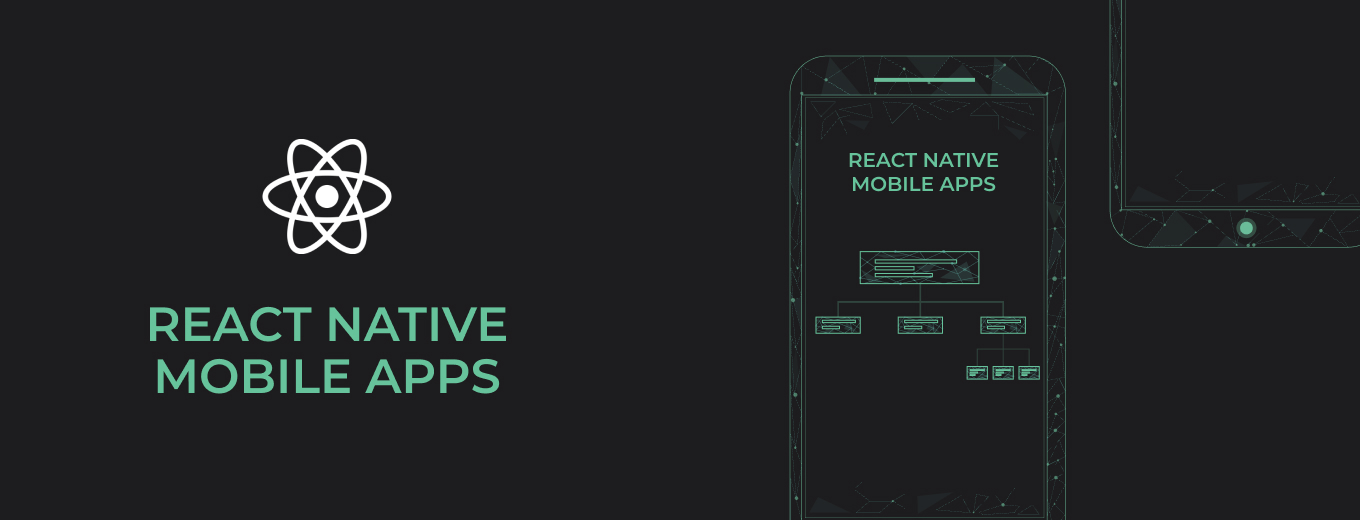
Svitlana Rakova
СОО



Today’s business ideas cannot be fully realized without the participation of mobile development technologies. Mobile applications are in highly demanded and are actively used by companies from various industries. They allow organizations to handle tasks more efficiently, automate processes, increase sales and improve customer experience.
That’s why app programming is improving its performance every year to become simpler, faster, more convenient, and cheaper in its implementation. It used to take a lot of time and effort to create an app, but with the help of React Native, creating cross-mobile apps has become much faster. So, why is React Native so beneficial to use, and what features does it offer? Read more about it in our article.
React Native is an open-source model framework for developing mobile apps, which was created by Facebook. What is React Native main characteristic, is that the platform was created based on React and it develops applications for both Android and iOS. Developers’ tools also include JavaScript editor, XCode, Android Studio, SDK, and Emulator combo. The React Native app can run on any device and uses only one codebase.
This framework is economical and efficient. It brings many benefits for entrepreneurs and developers because it simplifies a task and boosts app efficiency. At the same time, React Native provides excellent performance and user interaction flexibility. Many world-famous brands use this platform as the basis of their smartphone apps, which says a lot about its quality and success.
Initially, Facebook created React Native to shape its high-quality mobile app for the social portal. And it succeeded. Millions of Facebook app users are proof of that. Since Framework is open source, other companies have also trusted it to create smartphone applications for their purposes. As a result, such global market leaders are using the React Native platform in their apps:
The list is truly astounding. But why has react native app development company made such an impression on business representatives? Let’s deal with that below.

Like any other framework, React Native has its strengths and weaknesses. Nevertheless, the platform brings a lot of advantages from both a business and development point of view, which outweigh any nuances. Below we take a closer look at the main advantages of React Native.
React Native has a vast library of codes, and therefore developers can easily use them depending on the purpose, thus speeding up the completion of development. In addition, they can reuse code and rework components previously developed as needed. Developers don’t need to adapt apps separately to the different OSes, as apps are developed for both of them. On top of that, users of such a framework have low maintenance costs since they only have to deal with one source code.
The platform is perfect for creating a user-friendly interface. The react native splash screen and navigation are very smooth and understandable on an intuitive level. An average user-oriented application will attract a large audience who will enjoy interacting with your product.
As mentioned earlier, the React Native platform allows you to handle the creation of your app as quickly as possible, so if you use it when creating your MVP, you will speed up your go-to-market considerably. By testing the application and getting feedback, all the code elements are easily corrected, and you will quickly create a ready-to-use product.
React Native has a very large community of experts. That’s why if you run into any problems during development, you’ll get help to resolve the issue if you throw a cry. You can post your question on Reddit, after which you’ll get your answer quickly.
These mechanisms are capable of detecting and reporting bugs themselves. This way, developers can focus on the more important points and solve problems as they come up.
Another feature that makes it a lot easier for developers is the live reload feature. You can use it to read the file from where the developer made the last changes.
The Framework is compatible with third-party plugins and takes up little memory space to process. React Native is also characterized by smoothness and fast loading times. It doesn’t require additional web representation features.
Very convenient and simplifies application development for any operating system because the platform uses a single-code base. You no longer need to hire a separate programming team for every OSes.
Of course, the Framework has disadvantages, and we would be lying if we said it does not have any. For example, it may have poor performance on older devices, is not as efficient for complex interfaces, and may have problems with updates. Nevertheless, all these problems are solvable in the future, and the pros remain the same, which makes React Native the ideal option to build almost any application, whether it is a social network, eCommerce app, or other.
React Native is not always the answer to all these questions. Other mobile development technologies allow users to apply those methods that are best compatible with their projects. Below we will compare this Framework with other representatives to identify their main difference and application.
Flutter is the best-known analog of React Native. Flutter was created by Google and uses another programming language, Dart. Its peculiarity is that it communicates with native libraries directly, so its startup time is much faster and performance is higher. However, in the flutter vs. react native duel, the former loses in terms of the number of third-party libraries and the size of the community. Also, it cannot switch from web development to mobile development quickly.
Xamarin offers a similar working environment. It has excellent performance and allows you to share 90% of the code base between iOS and Android as well. However, its disadvantage is that it doesn’t allow you to choose your code editor and is only tied to Visual Studio.
Ionic is a framework that allows you to use the following tools to create mobile apps:
At the same time, Ionic does not require knowledge of a native programming language, which makes it possible to create applications for both mobile OSes quickly and inexpensively. But its UI/UX design choices and performance levels are significantly inferior to React Native. Nevertheless, any cross-platform framework pales in comparison to native development. None of them can achieve the same performance as native app development. So, if you are planning to create a business app only for one operating system or if you are planning to use more complex animations and other interface elements, it is better to use native development. But if you want to create a simpler project, React Native will be an indispensable tool.
Comments